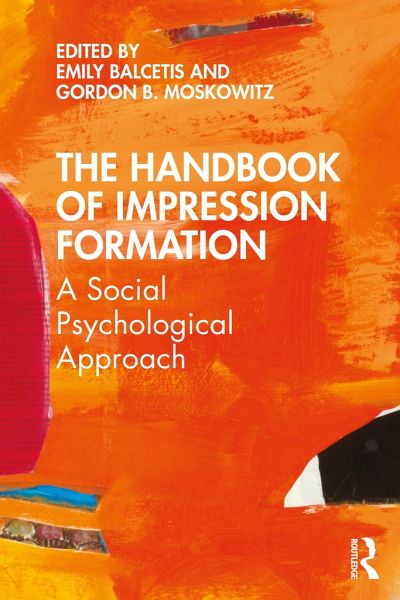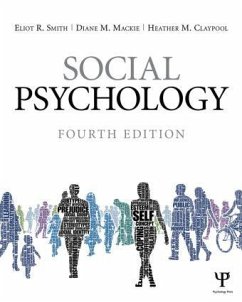
The Handbook of Impression Formation
A Social Psychological Approach
Herausgegeben: Balcetis, Emily; Moskowitz, Gordon B.
Versandkostenfrei!
Versandfertig in 6-10 Tagen
56,99 €
inkl. MwSt.
Weitere Ausgaben:

PAYBACK Punkte
28 °P sammeln!
Presenting diverse perspectives from eminent scholars and contemporary researchers, The Handbook of Impression Formation contextualizes current and future areas of research in the social psychology of impression formation within a rich historic framework.Affirming that impression formation is at the core of human experience, chapters explore how and why people form snap judgments about others and when those impressions update. They examine the processes through which people infer the reasons for the events they encounter, allowing people to plan for appropriate behavioral responses to social c...
Presenting diverse perspectives from eminent scholars and contemporary researchers, The Handbook of Impression Formation contextualizes current and future areas of research in the social psychology of impression formation within a rich historic framework.
Affirming that impression formation is at the core of human experience, chapters explore how and why people form snap judgments about others and when those impressions update. They examine the processes through which people infer the reasons for the events they encounter, allowing people to plan for appropriate behavioral responses to social contexts. The research reviewed is informed by the foundational theory of unconscious automatic processes involved in making judgements of other people, pioneered by Professor Jim Uleman who contributes a chapter that suggests important new directions, and concludes the volume by reflecting on the state of the field more broadly. The book explores how certain attributes stimulatecategorization, examining current issues around implicit bias, stereotypes, and social media. Chapters cover a range of approaches, featuring personal narratives, presentation of new data and discoveries, comprehensive literature reviews, and contemplations on where the field must go and what questions require focus for progress to be made, calling for even the most advanced scholars to contribute more to the collective investigation of impression formation.
This fascinating work provides a solid foundation from which all researchers can build a new and unique program of research, and arms the reader with the intellectual tools they need to chart new theoretical territory and discover aspects of the human experience we have yet to even wonder about. It is essential reading for students and academics in social psychology, and the social sciences more broadly.
Affirming that impression formation is at the core of human experience, chapters explore how and why people form snap judgments about others and when those impressions update. They examine the processes through which people infer the reasons for the events they encounter, allowing people to plan for appropriate behavioral responses to social contexts. The research reviewed is informed by the foundational theory of unconscious automatic processes involved in making judgements of other people, pioneered by Professor Jim Uleman who contributes a chapter that suggests important new directions, and concludes the volume by reflecting on the state of the field more broadly. The book explores how certain attributes stimulatecategorization, examining current issues around implicit bias, stereotypes, and social media. Chapters cover a range of approaches, featuring personal narratives, presentation of new data and discoveries, comprehensive literature reviews, and contemplations on where the field must go and what questions require focus for progress to be made, calling for even the most advanced scholars to contribute more to the collective investigation of impression formation.
This fascinating work provides a solid foundation from which all researchers can build a new and unique program of research, and arms the reader with the intellectual tools they need to chart new theoretical territory and discover aspects of the human experience we have yet to even wonder about. It is essential reading for students and academics in social psychology, and the social sciences more broadly.














